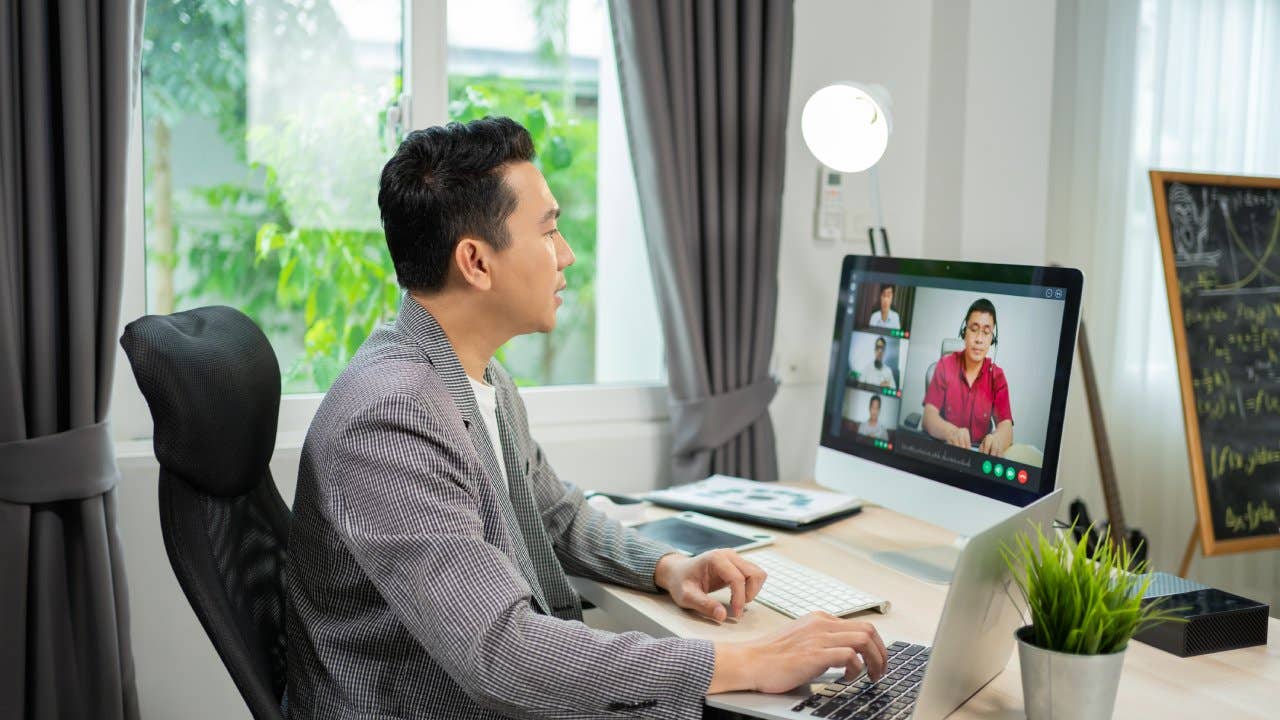Understanding the Role of a Home-based Visual Assistant
A home-based visual assistant plays a crucial role in supporting clients remotely. They focus on creating visual content, such as graphics, images, and videos, to enhance communication and engagement. Their tasks may include designing social media posts, creating presentations, and editing photographs. Home-based visual assistants use their creativity and technical skills to deliver visually appealing materials that meet their clients’ needs.
Overview of a Home-based Visual Assistant position
A home-based visual assistant is a remote worker who focuses on creating visual content for clients. They use their creativity and technical skills to design graphics, images, and videos that enhance communication and engagement.
Skills and qualifications needed for a Home-based Visual Assistant
A Home-based Visual Assistant should possess strong graphic design skills, proficiency in visual content creation software, and excellent attention to detail. They must have creativity and a keen eye for aesthetics, along with effective communication and collaboration skills. In addition, a strong portfolio showcasing previous work is highly recommended.
You can also read: Customer Care Career Path: Becoming a Client Service Representative
Setting Up Your Home Office
To set up a home office, one should have a dedicated workspace with reliable internet and an up-to-date computer. It is also important to have an ergonomic chair and desk for comfort. Backup power and secure data storage solutions are also recommended for a well-equipped home office.
Essential equipment for a productive home office
To create a productive home office, it is essential to have the right equipment. This includes a reliable computer with up-to-date software, a high-speed internet connection, and a comfortable ergonomic chair. Additionally, a desk with ample workspace and proper lighting can greatly enhance productivity. Backup power solutions and secure data storage options are also important for a well-equipped home office.
Creating a comfortable workspace for optimal efficiency
To create a comfortable workspace for optimal efficiency, it is important to prioritize ergonomics. This includes investing in a supportive chair and a desk with adjustable height. Proper lighting and good ventilation are also crucial. Keeping the workspace organized and clutter-free can further enhance efficiency.
Time Management and Productivity Tips
Effective time management is essential for home-based visual assistants. They should utilize strategies such as prioritizing tasks, setting goals, and creating a schedule. Tracking time spent on different projects can help identify areas for improvement. Additionally, using productivity tools like task management apps can enhance workflow and organization.
You can also read: Mastering the Application Process for Canadian Scholarships and Grants
Effective time management strategies for Home-based Visual Assistants
Home-based Visual Assistants can employ various time management strategies to enhance their productivity. These include prioritizing tasks, setting goals, creating a schedule, and tracking time spent on different projects. Utilizing these strategies allows them to work efficiently and effectively.
Utilizing productivity tools to enhance workflow
Home-based Visual Assistants can boost their productivity by utilizing a variety of productivity tools. These tools, such as project management software, task tracking apps, and collaboration platforms, help streamline workflows and ensure efficient task completion. By incorporating these tools into their daily work routine, Home-based Visual Assistants can enhance their productivity and deliver high-quality results.
Communication Skills and Client Interaction
Building strong communication skills is essential for Home-based Visual Assistants when it comes to client interaction. They need to effectively convey information, actively listen, and ask clarifying questions to ensure clear communication. Assessing client needs and providing timely updates are also crucial in maintaining a professional relationship.
Building strong communication skills for remote client interaction

Building strong communication skills is crucial for remote Visual Assistants to effectively interact with clients. They must listen actively, ask clarifying questions, and provide timely updates to ensure clear and professional communication.
Handling client requests and feedback professionally
When it comes to handling client requests and feedback, a home-based Visual Assistant must approach it professionally. They should promptly respond to inquiries, address concerns, and provide solutions. Additionally, they should actively seek feedback to continuously improve their performance and meet client expectations.
Developing Visual Content Creation Skills
Developing Visual Content Creation Skills involves mastering visual content creation tools and software commonly used in the industry. It also entails creating engaging and visually appealing materials that capture the attention of clients and effectively communicate their message.
You can also read: Flying Smart: Making the Most of Publicly-Funded Air Ticket Discounts
Mastering visual content creation tools and software
Mastering visual content creation tools and software is essential for a home-based visual assistant. This involves becoming proficient in programs such as Adobe Photoshop, Canva, and Illustrator, and learning how to create and edit images, videos, and graphics.
Creating engaging and visually appealing materials for clients
As a home-based visual assistant, it is crucial to excel in creating engaging and visually appealing materials for clients. This can include designing eye-catching graphics, editing captivating videos, and crafting beautiful images that effectively communicate the client’s message.
Advancing Your Career as a Home-based Visual Assistance
Advancing Your Career as a Home-based Visual Assistant requires networking and seeking opportunities for career growth. It also involves continuing education and skill development to stay updated with the latest trends and technologies in the field.
Networking and seeking opportunities for career growth
Networking and seeking opportunities for career growth is essential for a home-based visual assistant. They can attend virtual networking events, join professional associations, and connect with others in the field to expand their network and discover new job prospects. They should also actively seek out opportunities for professional development and skill enhancement to advance their career.
Continuing education and skill development for professional advancement
Continuing education and skill development are crucial for professional advancement. Home-based visual assistants should constantly seek opportunities to enhance their knowledge and expertise in areas relevant to their field. This can be done through online courses, webinars, workshops, or even pursuing advanced degrees. By staying updated on industry trends and new technologies, they can stay competitive and provide high-quality services to their clients.
Understanding the Role of a Home-based Visual Assistant
A home-based visual assistant plays a crucial role in supporting clients remotely. They focus on creating visual content, such as graphics, images, and videos, to enhance communication and engagement. Their tasks may include designing social media posts, creating presentations, and editing photographs. Home-based visual assistants use their creativity and technical skills to deliver visually appealing materials that meet their clients’ needs.
Overview of a Home-based Visual Assistant position
A home-based visual assistant is a remote worker who focuses on creating visual content for clients. They use their creativity and technical skills to design graphics, images, and videos that enhance communication and engagement.
Skills and qualifications needed for a Home-based Visual Assistant
A Home-based Visual Assistant should possess strong graphic design skills, proficiency in visual content creation software, and excellent attention to detail. They must have creativity and a keen eye for aesthetics, along with effective communication and collaboration skills. In addition, a strong portfolio showcasing previous work is highly recommended.
You can also read: Effortless Ways to Secure Government Benefits Made Simple
Setting Up Your Home Office
To set up a home office, one should have a dedicated workspace with reliable internet and an up-to-date computer. It is also important to have an ergonomic chair and desk for comfort. Backup power and secure data storage solutions are also recommended for a well-equipped home office.
Essential equipment for a productive home office

To create a productive home office, it is essential to have the right equipment. This includes a reliable computer with up-to-date software, a high-speed internet connection, and a comfortable ergonomic chair. Additionally, a desk with ample workspace and proper lighting can greatly enhance productivity. Backup power solutions and secure data storage options are also important for a well-equipped home office.
Creating a comfortable workspace for optimal efficiency
To create a comfortable workspace for optimal efficiency, it is important to prioritize ergonomics. This includes investing in a supportive chair and a desk with adjustable height. Proper lighting and good ventilation are also crucial. Keeping the workspace organized and clutter-free can further enhance efficiency.
Time Management and Productivity Tips

Effective time management is essential for home-based visual assistants. They should utilize strategies such as prioritizing tasks, setting goals, and creating a schedule. Tracking time spent on different projects can help identify areas for improvement. Additionally, using productivity tools like task management apps can enhance workflow and organization.]
Effective time management strategies for Home-based Visual Assistants
Home-based Visual Assistants can employ various time management strategies to enhance their productivity. These include prioritizing tasks, setting goals, creating a schedule, and tracking time spent on different projects. Utilizing these strategies allows them to work efficiently and effectively.
Utilizing productivity tools to enhance workflow
Home-based Visual Assistants can boost their productivity by utilizing a variety of productivity tools. These tools, such as project management software, task tracking apps, and collaboration platforms, help streamline workflows and ensure efficient task completion. By incorporating these tools into their daily work routine, Home-based Visual Assistants can enhance their productivity and deliver high-quality results.
Communication Skills and Client Interaction

Building strong communication skills is essential for Home-based Visual Assistants when it comes to client interaction. They need to effectively convey information, actively listen, and ask clarifying questions to ensure clear communication. Assessing client needs and providing timely updates are also crucial in maintaining a professional relationship.
Building strong communication skills for remote client interaction

Building strong communication skills is crucial for remote Visual Assistants to effectively interact with clients. They must listen actively, ask clarifying questions, and provide timely updates to ensure clear and professional communication.
Handling client requests and feedback professionally
When it comes to handling client requests and feedback, a home-based Visual Assistant must approach it professionally. They should promptly respond to inquiries, address concerns, and provide solutions. Additionally, they should actively seek feedback to continuously improve their performance and meet client expectations.
Developing Visual Content Creation Skills
Developing Visual Content Creation Skills involves mastering visual content creation tools and software commonly used in the industry. It also entails creating engaging and visually appealing materials that capture the attention of clients and effectively communicate their message.
Mastering visual content creation tools and software
Mastering visual content creation tools and software is essential for a home-based visual assistant. This involves becoming proficient in programs such as Adobe Photoshop, Canva, and Illustrator, and learning how to create and edit images, videos, and graphics.
Creating engaging and visually appealing materials for clients
As a home-based visual assistant, it is crucial to excel in creating engaging and visually appealing materials for clients. This can include designing eye-catching graphics, editing captivating videos, and crafting beautiful images that effectively communicate the client’s message.
Advancing Your Career as a Home-based Visual Assistant
Advancing Your Career as a Home-based Visual Assistant requires networking and seeking opportunities for career growth. It also involves continuing education and skill development to stay updated with the latest trends and technologies in the field.
Networking and seeking opportunities for career growth
Networking and seeking opportunities for career growth is essential for a home-based visual assistant. They can attend virtual networking events, join professional associations, and connect with others in the field to expand their network and discover new job prospects. They should also actively seek out opportunities for professional development and skill enhancement to advance their career.
Continuing education and skill development for professional advancement
Continuing education and skill development are crucial for professional advancement. Home-based visual assistants should constantly seek opportunities to enhance their knowledge and expertise in areas relevant to their field. This can be done through online courses, webinars, workshops, or even pursuing advanced degrees. By staying updated on industry trends and new technologies, they can stay competitive and provide high-quality services to their clients.
You can also: Top Lucrative Work-From-Home Jobs to Kickstart Your Career

